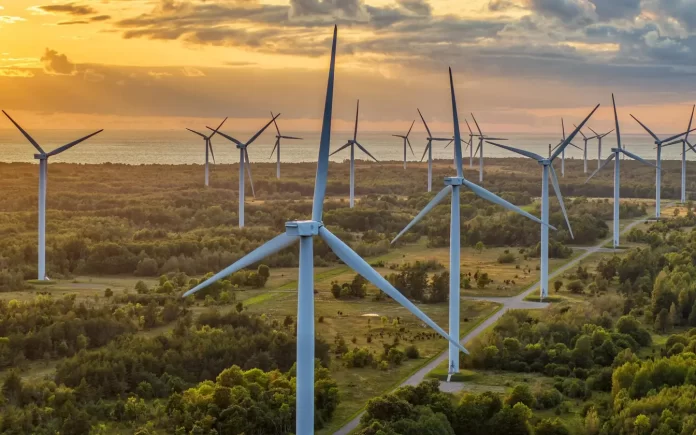Potential large international investors do not look to how far down the road a destination country is in implementing the green transition, and in fact the reverse is the case, Conservative People’s Party of Estonia (EKRE) Riigikogu candidate Mike Calamus writes in investigative weekly Eesti Ekspress.

Calamus, an Estonian-American and Estonian citizen. who chairs EKRE’s U.S. branch, wrote his piece in response to an opinion piece by Raino Paron, a lawyer, which appeared on Eesti Ekspress’ site (link in Estonian) over a month ago and said EKRE’s “lifeboat” was not “seaworthy”.
Calamus encapsulates Paron’s position as being one where EKRE’s policies would harm both the economy and national security, since they would involve halting the payment of renewable energy fees, remove the CO2 quota component of electricity generation costs, both of which would – since these have been installed via international agreement – have a major negative impact on the country’s international reputation, scaring potential foreign investors away in the process.
Calamus rejects this, writing that most major investors are in fact put off by green transition policies put in place at a nation state level, due to fears of high prices and shortages – many potential investors would be involved in firms which are heavy consumers of electricity – as evidence by the fact that soaring energy prices are often the main stated factor when domestic companies in Estonia make layoffs, or close their doors altogether.
This explains whey many large companies are moving to east Asian countries such as China, hardly a role model for the green transition, Calamus argued, or even closer to home, to Hungary, where several German automotive firms are relocating despite the less than stellar record the Orban government has in following and enforcing EU regulations – Hungary produces around 80 percent of its energy from fossil fuel sources, Calamus said.
Ultimately, one does not have to follow every “stupidity” when it comes to EU regulations, agreements and commitments, Calamus writes, not the least because they are not set in stone and have to be reexamined as circumstances change
In relation to the UN’s Paris Agreement of 2016, countries signed up to it should still retain their sovereignty in fulfilling obligations, without being penalized by other states, he goes on.
That Paron in his piece referenced the possible disintegration of the EU or in moving to another sphere of influence, for instance the Russian one, actually mirrors fears stoked in Russia itself, Calamus says – when the Visegrad countries rejected EU mandatory refugee resettlement quotas in 2017, they were not doing to to get closer to Russia, but solely in domestic self interest which, Calamus writes, is: “The reason why burning cars and the explosion of grenades is not a common phenomenon in Warsaw in the way that it is, for example, in Sweden.”
In short, those countries had done the right thing, Calamus continues, and in doing so the union is being steered more on to the right track, whereas unquestioningly taking on every imposition from above would render Estonia spineless, and talk of its tenacity to survive through the ages would be meaningless.
Arguing in this way with the EU on the violations of certain points is thus preferable for Estonia, which would find allies here among other member states, than seeing Estonia disintegrate, and would be the real way to obtain the respect of the international community, Calamus concludes.
The original Eesti Ekspress piece (in Estonian) is here.
https://news.err.ee/1608882152/ekre-candidate-investors-wary-of-green-transition-not-attracted-to-it








